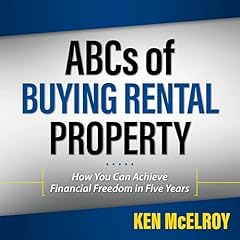
The Money Revolution
How to Finance the Next American Century
No se pudo agregar al carrito
Add to Cart failed.
Error al Agregar a Lista de Deseos.
Error al eliminar de la lista de deseos.
Error al añadir a tu biblioteca
Error al seguir el podcast
Error al dejar de seguir el podcast
 Exclusivo para miembros Prime: ¿Nuevo en Audible? Obtén 2 audiolibros gratis con tu prueba.
Exclusivo para miembros Prime: ¿Nuevo en Audible? Obtén 2 audiolibros gratis con tu prueba.Compra ahora por $23.44
-
Narrado por:
-
Chris Reilly
-
De:
-
Richard Duncan
In The Money Revolution: How to Finance the Next American Century, economist and best-selling author Richard Duncan lays out a farsighted strategy to maximize the United States' unmatched financial and technological potential. In compelling fashion, the author shows that the United States can and should invest in the industries and technologies of the future on an unprecedented scale in order to ignite a new technological revolution that would cement the country's geopolitical preeminence, greatly enhance human well-being, and create unimaginable wealth. In this book, you will find: an important new history of the Federal Reserve that details the transformation of the country's central bank from the passive lender of last resort created by its founders in 1913 into the world's most powerful economic institution today; a fascinating discussion of the evolution of money and monetary policy in the United States over the past century; an examination of the role that credit has played in generating economic growth; a detailed description of the country's capital structure and its dangerous deficiencies; and an urgent call-to-action for the United States to begin a multitrillion-dollar investment program targeting industries of the future.
The Money Revolution is an engaging listen that is ideal for anyone interested in the future of the United States.
©2022 Richard Duncan (P)2022 Ascent AudioLos oyentes también disfrutaron:




















My second biggest gripe with the book was the voice actor. Talk about slow! I eventually turned it all the way up to 1.5x just to make it sound like a normal book. Anything less than 1.3x makes you want to pull your hair out and you'll immediately lose interest. It's almost like the voice actor is talking slow so he can get paid for more time. I've never had an audio book make me not want to listen because or the voice actor. If it weren't for the fact this book was recommended by Robert Kiyosaki on a recent podcast, I would have stopped a few chapters in and called it a loss. Horrible choice on Voice actor!
A large majority of the book is nothing but very dry history and numbers, although this was almost the death of this book for me, I'm glad I stayed for the ending as I did thoroughly enjoy the last 1/3rd of the book. It was a wealth of information and really gave me an insight to the current and upcoming economic situation that I maybe didn't see beforehand.
Overall this was a 3...maybe 3.5 out of 5 stars!
My advice is to skip around the book to the parts that interest you and definitely listen to part 3.
A Real Snooze-Fest With A Great Ending - Bad Voice
Se ha producido un error. Vuelve a intentarlo dentro de unos minutos.
Bad narration.
Se ha producido un error. Vuelve a intentarlo dentro de unos minutos.
Now, the bad thing about the book. The author only began to reveal the intention of pouring all the data for the first 350 pages until page 400, where you began to learn his thesis is of first a praise for modern monetary policy and a call of using it more. With the benefit of hindsight, it shows how the logic have failed to consider the full mechanism where too much focused is put on the method of finance and what to do with the money and now enough on how to acquire the goods needed. In short, the Fed can print the money but not the oil and iron to get the job done.
Nevertheless, the book is a good read as it helps to identify the missing gap or assumption as to see how MMT has created in the end a very fragile economic system that is easily attacked through supply constraint and can cause big economic consequences with high inflation nowadays across the globe.
Thus, instead of the free money story, we may just as well enter into a period of low growth for longer with high inflation for longer as MMT had printed too much money and it will take 10 years to have it resolved.
A fair review
Se ha producido un error. Vuelve a intentarlo dentro de unos minutos.
I Had Great Expectations For This Book....But
Se ha producido un error. Vuelve a intentarlo dentro de unos minutos.
The conclusion is worth the wait
Se ha producido un error. Vuelve a intentarlo dentro de unos minutos.


